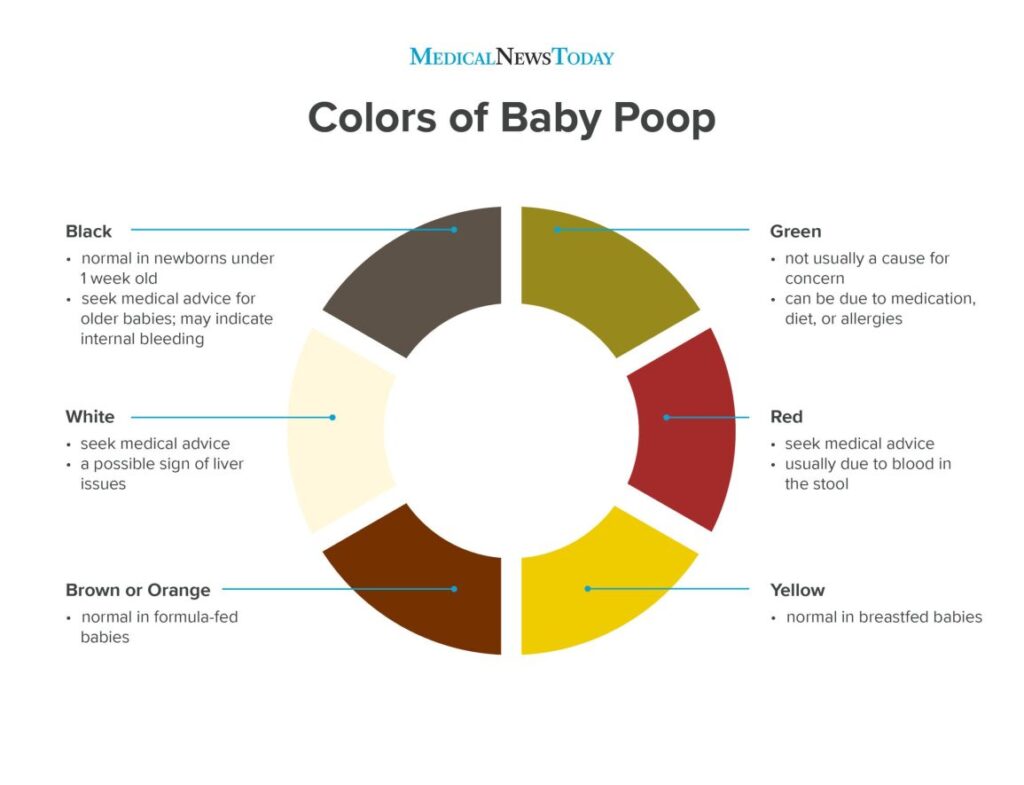YES, it is completely normal! Newborn poop can be a mystery as it changes. It is hard to wrap your mind around your baby not pooping anywhere from 4-8 times a day, especially when you feel like all you do is change diapers in those first few days and weeks. Some newborns poop with every feed, while others only go a couple times a day. Every baby is different. Again, it is completely normal for your baby, who has been pooping several times a day to move to only go a few times a week.
WHY does that happen and WHERE does that poop go?
Great questions. “Newborn babies often poop after every feeding, about 6 times per day. In the first few weeks after delivery your baby’s intestines are maturing and becoming more efficient at extracting nutrition from breast milk or formula. As their intestines get better at digesting food, the time between bowel movements gets longer and longer. Before you know it you have a two-month-old that is going several days without dirtying their diaper. If your baby has blood in his or her stool, persistent crying, fever, or isn’t feeding normally, you need to seek medical care. ”
How Long Can A Baby Go Without Pooping?
Diaper output is one way to help parents feel assured that your baby is having his or her needs met since we can’t measure how much breast milk they are getting from your breasts. Your newborns first poop is called meconium, the dark green or black tar like substance for the first few days after delivery. This slowly transitions as your milk comes in and turns into a mustard seed like runny consistence but can vary from brown to yellow green, this too is NORMAL.
Charts and Visual
Days 1-3 | First 6 weeks | ||
| Breastfed | Newborn will pass meconium by 24-48 hours after birth. It will change to a green-yellow color by day 4. | Runny, yellow stool. Expect at least 3 bowel movements per day, but may be up to 4-12 for some babies. After this, baby may only poop every few days. | |
| Formula-fed | Newborn will pass meconium by 24-48 hours after birth. It will change to a green-yellow color by day 4. | Light brown or greenish stool. Expect at least 1-4 bowel movements per day. After the first month, baby may only pass stool every other day. |

Always chat with your pediatrician or health care provider if you have concerns or something seems out of the ordinary with your newborns bowel movements. If your baby is pooping only once a day in the first few weeks, this can be a sign that they are not getting enough to eat. Unless your health care provider suggests, do NOT give your baby water or juice if you think they are constipated.
There can be a variety of changes in your babies poop based on what you, as their parent are eating, if you are introducing formula, solids or if they are having a sensitivity or allergy to any of the above. Rest assured, know that your breast milk provides everything your baby needs, so nothing goes to waste! If you would like even more helpful hints to read about, check out my blog page at https://www.yourfamilysjourney.com/doula-blog/


 You are the FIRST of your friends to be pregnant. Everyone is so excited and over the moon to meet your little bundle of joy. Soon though, they realize that having a baby is A LOT of work. You can no longer just drop everything and meet up. You are not as free to go to happy hour, the gym, or meet up after you get off work.
You are the FIRST of your friends to be pregnant. Everyone is so excited and over the moon to meet your little bundle of joy. Soon though, they realize that having a baby is A LOT of work. You can no longer just drop everything and meet up. You are not as free to go to happy hour, the gym, or meet up after you get off work.

